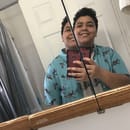My senior year in high school, one of my roommates at my boarding school told me she didn’t like labels when I asked her if she was straight. As a joke, I told her she’d be labeled as the girl who didn’t like labels. I didn’t realize that three years later I’d find myself in the exact same position. I’m probably not going to convince you to ditch your labels by the end of this, but I’m hoping to challenge your perspective on labels and the way you see the world.
The labels I’m talking about are in relation to gender and sexuality, but labels are much broader than that. We use labels to navigate our world and understand it better. Labels are how we categorize people and our expectations of them. These labels carry deeper meanings and implications than their dictionary definitions and these meanings are created by our culture and society. A perfect example of this was a response I saw to the recent Gillette ad. Here is the response, but I’ll tell you what they did. They asked “What is a man?” then answered with “Is a man brave? A hero? A protector? Vulnerable? Disposable? Broken? Trying?” A man can be those things but a man is not innately those things. Technically, a man is simply a male human but our culture has created more meaning.
Labels are what we use to navigate the outside world but they are also what we use to navigate ourselves. We understand ourselves as brothers, sisters, coworkers, mothers, fathers, students, teachers, and so on and so forth. We use these labels and roles to shape our identity. I’m not against these types of labels, they are much more innate and necessary than labels of gender or sexuality. I am also not against labels of gender and sexuality because as I’ve stated, they help us understand ourselves. I’ve used many different labels to explore who I am as a person. I’ve labeled myself as a straight woman (shoutout to middle school), lesbian and I’ve been queer. I’ve also been a woman, non-binary woman and a trans man. Each of these labels gave me a certain perspective and experience. Most specifically they gave me a limited view and experience. I’ve only dated and pursued women but if I place a label on that I’m cutting myself off from half of the population. I’ve always experienced attraction to men, but because of my experience with them I haven’t dated them (and probably won’t). That’s not sexuality, its an active choice so I don’t want to label and limit myself.
My gender was even harder for me to tackle, understand and potentially label. I was assigned female at birth and from a young age, I knew that I was not a woman. Because of the way society has presented us with gender as a binary, I assumed if I wasn’t a woman then I must be a man. I experimented as a man as it is presented on the traditional gender binary and never really felt quite right. Similar to my sexuality, I felt that whatever label I placed on myself restricted me. Scholars have pretty much come to the conclusion that gender is a social construct and a performance. Once I understood that, I decided to stop trying to understand my experience with gender. I understand that he/him/his pronouns make me feel more comfortable and that’s all that really matters.
While getting rid of labels helped me understand myself better, it definitely hasn’t helped others understand me. I’ve been coming out because I’m about to start taking testosterone and it’s quite hard to explain to people. Our society is structured in a way that is best understood through labels and people don’t know where I belong without them. I just hope that people can try to understand me as me, instead of trying to put me into a box that has a label. I challenge you to think about yourself, the labels you’ve put on yourself, the labels others place on you and ask what they mean. While labeling doesn’t work for me, it may work for you; however, I think it’s important to challenge what we think of ourselves and how we exist.



